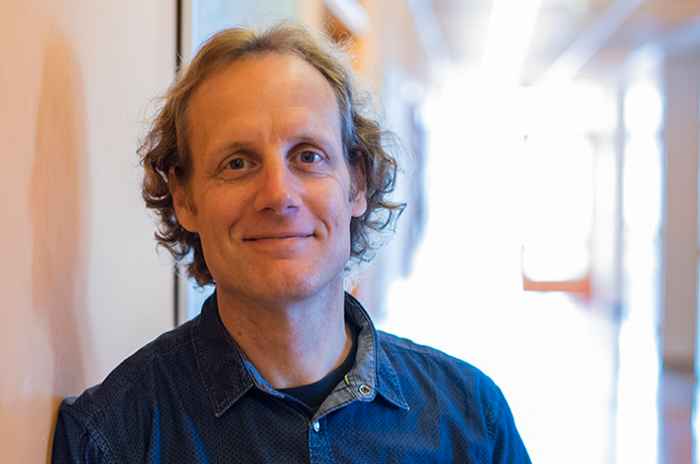Inaugural lecture: From black hole to energy efficient technology
Rembert Duine: "We should cherish the unexpected connections in science"
3 October 2022

Pure coincidence
The idea to draw his inspiration from theories about black holes came about entirely by chance, Duine explains. He was appointed professor of Theory of Nanoscale Systems in 2019. The idea began to lurk after a visit by Professor Bill Unruh to the Utrecht Institute for Theoretical Physics, where Duine works. Unruh, like Duine, is a theoretical physicist, but works on a completely different topic: Quantum mechanics in relation to black holes. Unruh gave a lecture during his visit, which gave Duine the idea to use the knowledge in his own field.
Faster and more energy efficient
That field, spintronics, is the basis for a new kind of information technology. It uses the spin of an electron and not the charge of an electron, as we are used to in electronics. Applications of spintronics are marginal for now, but the possibilities are promising. Spintronics is much faster and more energy efficient than electronics, because there is hardly any energy loss.
Black hole on chip
A major problem within spintronics is that the signal propagated by electron spins slowly dies out. In 2017, Duine published a theoretical proposal to remedy that extinction by amplifying the signal. That proposal uses the concept of Hawking radiation from black holes, whose existence Steven Hawking calculated in 1975. More than a year ago, Duine and colleagues at TU Eindhoven received a grant to realise the proposal experimentally, essentially building an equivalent of a black hole on a chip. Duine hopes that in the near future this system can act as an amplifier to solve the problem of signal extinction.
The current science and funding climate is pushing unexpected connections into the backgroundRembert Duine, Utrecht University
Studying black holes
Should Duine and colleagues succeed in building an analogue of a black hole in a lab, it will have an additional advantage. Namely, it would then become possible to study fundamental aspects of astronomical black holes, such as Hawking radiation, in a laboratory on Earth. As yet, for example, there has never been an observation of Hawking radiation that has convinced all scientists.
Message
Duine's inaugural lecture not only provides a look behind the scenes of his research. Using his own story, he argues that we should cherish the unexpected connections between fundamental and applied research. Fundamental research does not necessarily lead to an application directly, he says. There are also connections between fundamental research and applications that come about rather associatively. As far as Duine is concerned, the current science and funding climate is pushing those unexpected connections into the background.